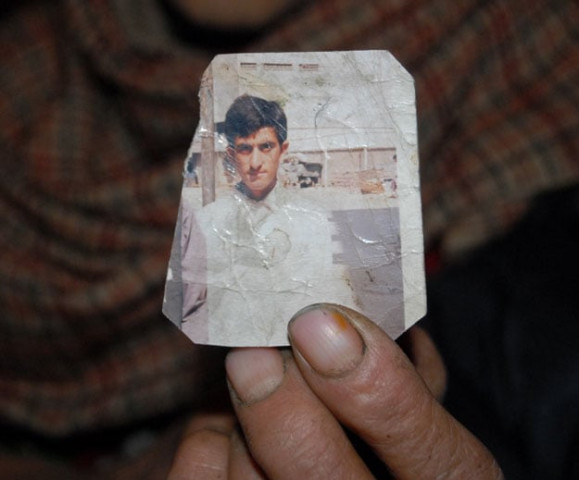Stop Shafqat’s execution
No one should die at the gallows at the hands of the state when there are doubts about investigation and trial process

This photograph taken on March 12, 2015 shows one of the Pakistani Kashmir parents of convicted killer Shafqat Hussain holding a photograph of their son in Muzaffarabad, the capital of Pakistani-administered Kashmir. PHOTO: AFP
The outcry is centred around the fact that Shafqat, from a desperately poor family, was only 14-year-old in 2006 when he committed the act of kidnapping and murder for which he was awarded the death penalty. He has also said that his confession was extracted after nine days of police torture while campaigners point out that his juvenile status was not brought to the court’s attention by his lawyer during the trial process.
These are serious matters. No one should die at the gallows, or in any other fashion, at the hands of the state when there are doubts about the investigation and trial process. These doubts evidently exist in the case of Shafqat. It is also true that our own laws bar capital punishment for child offenders. In the interest of building a safer, more just and more humane nation, these factors must be considered. There is a body of evidence out there which points to the fact that Shafqat was unfairly tried. With the world watching us, in this matter we need to demonstrate that we will not allow injustice to be done. It is also important to show that we are committed to building a system of justice that offers fair play to all. This did not happen, going by what we know, in Shafqat’s case. It is important then to step back, review the situation, and see what exactly is to be gained — and what lost — by going through with the hanging.
Published in The Express Tribune, March 14th, 2015.
Like Opinion & Editorial on Facebook, follow @ETOpEd on Twitter to receive all updates on all our daily pieces.














COMMENTS
Comments are moderated and generally will be posted if they are on-topic and not abusive.
For more information, please see our Comments FAQ